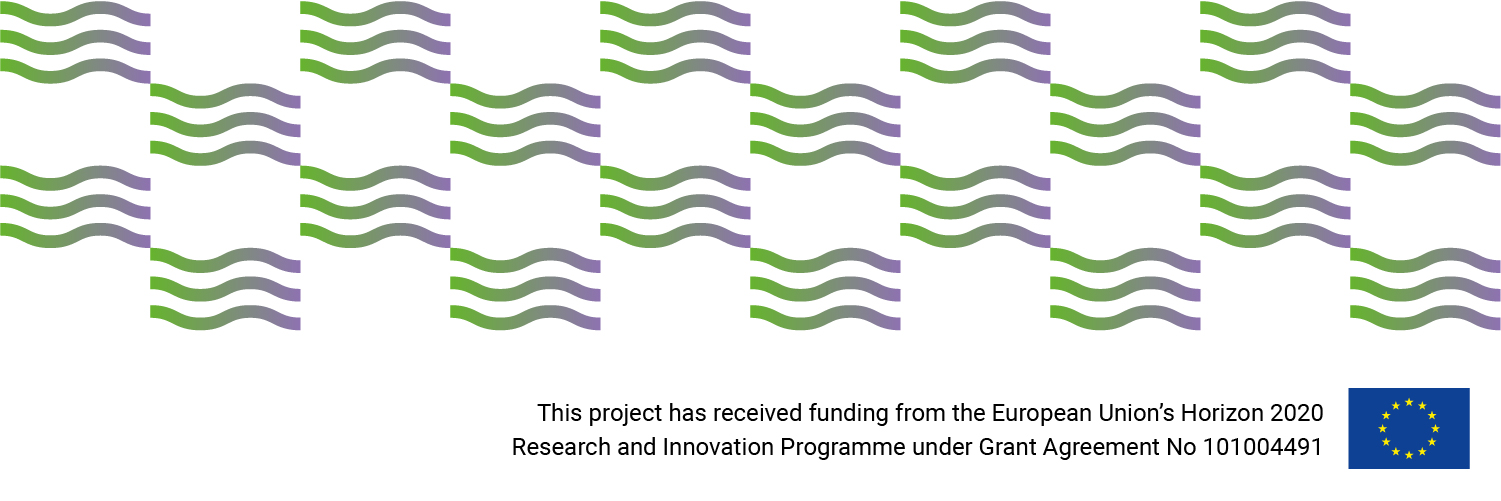
Conference
"Educational commons and active social inclusion"
May 26-28, 2023
Volos, Greece

Video Recordings (available for the “Saratsi” panel)
Click here to scroll down for conference’s Agenda & Info-pack
The EU-funded research project SMOOTH (Horizon 2020) is organizing an international conference to bring together researchers, practitioners, teachers, civil society organizations, activists, journalists, and policy-makers to discuss the challenges and opportunities of a commons-oriented education to reverse inequalities, to present good practices resulting from ongoing projects, and to inform political decision-making processes.
The conference critically draws out the implications of the commons for refiguring education, and for social change in general, on a footing of equality, sharing, participation, togetherness, caring, and freedom. It will address active social inclusion according to the ‘educational commons’, through a variety of methodologies such as pedagogical documentation, pedagogy of (active) listening, ethnography, discourse analysis, etc. ‘Educational commons’ refer to learning communities where decisions about the educational process are made collectively with equal participation in assemblies jointly by the teachers, learners and their guardians (when they are under age). The very practice of education and learning becomes a ‘common good or resource’ which is collectively shaped and managed by the members of the educational community in terms of equality, freedom, and participation. Moreover, proposals relating to the improvement and enrichment of educational policy are a key area of the conference. Furthermore, the discussion of the development of recognition tools and various practices or “languages” of evaluation of the learning outcomes of the commons are of equal importance.
The aim of the conference is to deepen and advance the emergent field of educational commons by discussing the following research questions from theoretical as well as empirical viewpoints:
- Can educational commons serve as a catalyst for reversing inequalities and an inclusionary strategy for children and youth at risk of social exclusion in Europe?
- How educational commons can contribute to the reversal of inequalities?
Contributions from all academic disciplines and research topics are welcome.
Papers, panels, and workshops should be related to the following areas:
- Educational commons and socio-political transformation
- Alternative pedagogies, heterotopias or real utopias in education: advancing freedom and equality
- Environmental, urban, cultural, political and digital commons and education
- Art, creativity and educational commons
- Peer to peer learning and governance
- Children and Young people as commoners
- Teachers as commoners
- Active social inclusion via informal and non-formal learning pathways
- Pedagogical documentation
- Active listening and conflict resolution in educational commons
- Post-digital glocalism and education
- Educational policies and alternative forms of evaluation
- Discourse, power, and subjectivation in educational commons
- Design justice and education
The papers will be selected according to relevance to the areas of the conference. Selected papers will be published in a collective volume/book.
The conference will be organized around short presentations (15-20 min max) with space for open discussion, and workshops.
The venue is the Lab of Sociology of Education, which is located in the main campus of the University of Thessaly (UTh, https://www.uth.gr/en) in Volos. The Lab belongs to the Department of Early Childhood Education at the University of Thessaly. UTh, and specifically the Lab of Sociology of Education (http://socedu.ece.uth.gr/) has a significant expertise on the field of commons, childhood, youth, and education, educational policy, as well as a vast experience in innovative educational interventions with the participation of young people and children. UTh is one of Greece’s leading Social Sciences and Humanities academic units.
There are no conference fees
Contact: smooth@uth.gr
Agenda Conference & InfoPack
All below details of the Conference (Conference Program/Agenda and InfoPack) are included in the Agenda Conference_Infopack.pdf
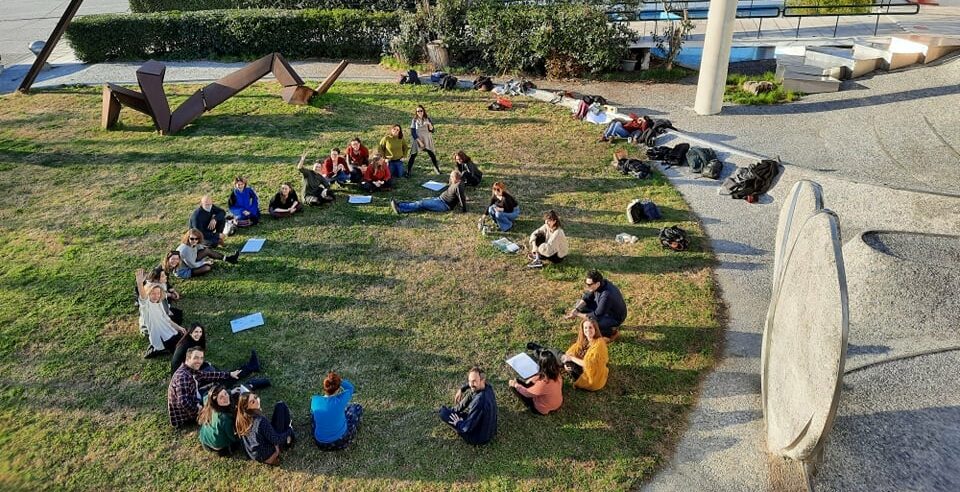
26/05 Friday
Registration 16:00 p.m. – 17:30 p.m.
Amphitheater “Saratsi”
Welcome, Yannis Pechtelidis 17:30 – 17:45 p.m.
Contemporary challenges and educational commons
Chairing Alekos Pantazis
17:45 – 20:30 p.m.
keynote speakers
- “ The Political and Educational Commons in Transition: A Response to Contemporary Challenges ”, Noah De Lissovoy 17:45-18:30
- “ Educational commons and three policy debates ”, Jordi Collet-Sabé 18:30-19:15
- “
Becoming fecund audiences to childhood publics
”, Sevasti-Melissa Nolas, 19:15-20:00
Discussion 20:00-20:30 p.m.
Dinner 21:30 p.m.
27/05 Saturday
9:00 – 10:30 a.m.
2 Panels
1st Panel: Inclusive strategies, chairing Sophia Moisiadou & Stelios Pantazidis, Room: “Skouvara”
- “
Seeking integration and continuity for refugee children and youth: Problems, challenges and possibilities within the German context
”, ”Case -Study: Federal State of Schleswig – Holstein”, Vassilis Tsianos & Christos Zisis
- “ Understanding Cultural Difference and Equality on the Refugee Issue through History: Teaching approaches in the Greek public kindergarten ”, Bantiou Marina
- “ Self-organization of migrant & refugee students through pedagogical practices of the commons ”, Sophia Moisiadou & Stelios Pantazidis
- “Social Pedagogy as a meaningful perspective for education and social learning in classroom” ”, Despoina Styla, Vassilis Pantazis
2nd Panel: Childhood, Creativity & Technology, chairing Symeonidou Ioanna & Lazaridou Eirini, Amphitheater “Saratsi”
- “Make common- Teaching through play” , Kristine Hultberg Ingridz
- “Encountering Mathematics and the Commons through CreatingImaginary Spaces in the Preschool Setting” , Lazaridou Eirini, Bicknell Danae, Chronaki Anna, Lykourioti Iris, Symeonidou Ioanna
-
“From photography to citizenship, from private to public – Photo stories’’
, Maria Dimopoulou, Kalliopi Kyrdi, Τhalia Dragona
- “Imaginary City. Educational Commons in Action: Students’ Collaborative Efforts to Redesign their Neighborhood” , Maria Kechagioglou, Maria Kokorotskou, Antonis Vlahos
10:30 – 12:00 a.m.
2 Panels & 1 Workshop
1st Panel: Teachers as commoners, chairing George Papagiannitsis & Anastasios Siatras, Room: “Skouvara”
- “ Preschool Teachers’ Views of Democratic Learning Processes in Interaction with Children in Sweden–an intergenerational perspective ”, Rauni Karlsson
- “ Community-based pedagogy and solidarity practices in teacher education: A case study ”, Anastasios Siatras & Alexandros Mokias
- “ Let’s talk about Commons”: Exploring teachers and other educators’ conceptions of the RED_SMOOTH project ”, Catarina Tomás, Elisabete X. Gomes, Carolina Gonçalves, Juliana Gazzinelli e Aline Almeida
- “ Exploring educators’ views about education, inequalities and the commons ”, Paschalis Arvanitidis, George Papagiannitsis and Athina-Zoe Desli
2nd Panel: Relevant European research projects: bonding and networking, chairing Yannis Pechtelidis & Ioannis Kozaris, Amphitheater “Saratsi”
- “
Transnational Gangsas Agents of EducationalCommons: The case of the Latin Kings and Queens Nation
”, Carles Feixa
- “
Who encourages pupils for further learning?
”, Peter Tibor Nagy
- “
Pedagogical interventions and class positions in schools: an ethnographic study from semi-peripheral Hungary
”, György Mészáros, Inclusion4Schools Project
- “
The SMOOTH project
”, Ioannis Kozaris
- “
The building of pedagogical material, an alternative way to educate using educational commons
”, Antoine Henry, Alain Mille, Jérémie Virgo
- “
The Sociocratic Circular Methodology (SCM) as a methodology of the educational commons: Workshop
”, Naya Tselepi
Coffee break 12:00 -12:30
12:30 – 14:00 p.m.
2 Panels & 1 Workshop
1st Space and commons in education, chairing Eirini Lazaridou & Danai Bicknel, Room “Skouvara”
-
“Digital Design & Construction Commons and their role in Architectural Technology Education”
, Dimitris Psychogyios
-
“Listen to: How architectural thinking can be important to the rest of the campus”
, Elsa Kiourtsioglou
- “Participatory reuse of materials as an educational process of sharing knowledge and creating communities” , Maria Dimitriou-Tsaknaki
- “ From teaching the commons to commoning teaching: towards a reflexive architectural education ”, Effrosyni Roussou, Androniki Pappa, Alexandra Paio
2nd Panel Solidarity Schools, chairing Alexandros Kioupkiolis & Mariniki Koliaraki, Amphitheater “Saratsi”
- “ Ambiances of common education: The case of Mesopotamia Solidarity School, Athens, Greece ”, Alexandros Kioupkiolis
- “ Infrastructuring education as Commons: The Solidarity Schools’ Network in Greece ”, Christos Giovanopoulos
- “ Solidarity School of Mesopotamia ”, Mariniki Koliaraki, & Christos Korolis
- “ Network of Solidarity Schools ”, Mariniki Koliaraki & Christos Korolis
- “ Working with children inside and outside school: Skasiarchio’s Social Pedagogy Group in action ”, Anastasia Karagianni & Charalampos Baltas
Workshop, “Room: H2”
“
Educational Commons and Democratic Education
”, Charlie Moreno-Romero
Lunch break 14:00 – 16:00
16:00 – 17:30 p.m.
2 Panels
1st Panel: Art, creativity and educational commons, chairing Elina Moraitopolou & Elena Viseri, Amphitheater “Saratsi”
- “Time lost and found: the time factor in educational commons – a view from MoMus” ”, Elina Moraitopolou, Elena Viseri, Panagiotis Kanellopoulos, Niki Nikonanou
- “ Co-operation through free expression ”, Fotini Dimopoulou, Marilena Georganta
- “Children and adults explore the human being’s place in nature and culture” , Liselott Mariett Olsson, Robert Lecusay and Monica Nilsson, Pernilla Sahlin, Kristina Rickan and Joanna Forsman, Birgitta Forsman, Ellen Spens and Erik Rask
- “ Reforming the Educational Approach of Museum Education: Lessons Learnt from Participation in the SMOOTH Project ”, Maria Kechagioglou, Christina Papaioakeim, Evi Papavergou, Katerina Paraskeva
2nd Panel: Alternative pedagogies, chairing Silia Raditsa & Yannis Pechtelidis, Room: “Skouvara”
- ” Alternative pedagogies, heterotopias or real utopias in education: advancing freedom and equality: “A Realistic Utopia for a Libertarian School of Commons “, Silia Raditsa, Sasa Dimitriadou, Sofia Sarakenidou, Yannis Pechtelidis
- “ Intercultural Encounters within a multi-cultural, self-organized learning community ”, Katerina Varella
- “ You have a right. The right to be happy” How to achieve this with Freinet’s Methodology ”, Kalliopi Mathioudaki , Vasiliki Spita
- “ Chaos as a Common Good? On Circus Pedagogy for Children on the Move ”, Camilla Löf
17:30 – 19:00 p.m.
2 Panels & 1 Workshop
1st Panel Peer governance, chairing NayaTselepi & Stelios Pantazidis, Amphitheater “Saratsi”
- “ Words that weave community. Creating spaces for student participation in the school’s educational community. ”, Beatriz Gallego-Noche, Cristina Serván Melero, Lucía del Moral-Espín
- “ The Commons in Secondary Education: Thresholds and Opportunities ”, Juno Tourne, Jochen Devlieghere, Rudi Roose & Lieve Bradt
- “ The children’s assembly! Creating our school reality through participation and democracy in the classroom and our school! ”, Aspasia Kalisora
- “ School councils using the Sociocratic Circular Method: traces & insights ”, NayaTselepi, Alexandros Kioupkiolis, Yannis Pechtelidis
2nd Panel Feminist decolonial commons in education, chairing Elina Moraitopolou & Elena Viseri, Room: “Skouvara”
- “ The Necessary integration of the critical perspective in constructing educational commons: Feminist methodological processes from research to praxis ”, Lucía del Moral-Espín, Bea Gallego Noche, Cristina Serván Melero
- “ ‘Little Tree that will become a forest’.An exemplar case study of feminist decolonial commons ”, Bampatzimopoulou Panagiota
- “ Critical Pedagogy and Feminist Pedagogy as Precursors of the Pedagogy of EducationalCommons ”, Éva Thun, John Wesley
Workshop, Room: Dance Room
“
Active social inclusion and interculturalism through community dance
”, Tsompanaki Eleni
28/05 Sunday
2 Panels
9:00 – 10:30 a.m.
1st Panel: Challenges and Reflections on Educational Commons, chairing Argyro Moumtzidou & Stelios Pantazidis, Room “Skouvara”
- “Hear, we go again” of MOMus Museum of Contemporary Art: Challenges and Reflections ”, Christina Mavini, Villy Polyzouli, Effie Skylitsi,
- “ Big Bang School : the project 2022: preparing the educational commons ”, Argyro Moumtzidou, Angelos Patsias, Sofia Fakiridou,
- “
Free the imprisoned knowledge! – Inclusive educational paths in prisons
”, Chiara Dell’Oca, Arianna Zottarel
2nd Panel: Post-digital practices of educational commons, chairing Alekos Pantazis & Danae Bicknell, Amphitheater “Saratsi”
- ”Make sense”: towards the creation of a collective awareness platform for refiguring education as well as social innovation and citizen science practices ”, Spyros Kourias, Leonidas Anthopoulos, Georgios Proias
- “ Commoning Mathematics through Making Artifacts as ‘Matters of Care’ Across Education and Architecture ”, Chronaki Anna, Lykourioti Iris, Symeonidou Ioanna, Lazaridou Eirini, Bicknell Danae with UTh students: Alexaki Eleni, Kleisiari Katerina, KounavisIoannis , Lialiou Andriana, Markopoulou Anna, NikolakakouLoukia, Nikolopoulou Maria, Papaioannou Lygia, Papounidou Chara, Tsarouchas Stergios Georgios, Tsiara Maria, Vacondiou Miranda Zingiridou Andromachi
- “ Think global, learn local: postdigital mergings of educational commons ”, Alekos Pantazis
10:30 – 12:00 a.m.
2 Panels & 1 Workshop
1st Panel Children and Youth as commoners, chairing Botonaki Angeliki, Viseri Elena, Room “Skouvara”
- “ We win when we are together’: sharing, caring and co-operation among pre-school children. Two case studies from the Horizon project 2020 SMOOTH ”, Botonaki Angeliki, Viseri Elena, Gatzelaki Chrysa, Pechtelidis Yannis
- “ An emergent paradigm of transforming morning circle into children’s council: the challenges and implications. ”, Gessiou Georgia, Zavogianni Eftychia
- “ Creating educational commons’ spaces hand-in-hand with children ”, Natália Fernandes, Daniela Silva, Fernanda Martins, Joana Casanova, Marlene Barra, Teresa Sarmento, Erika Machado
- “
Youth participation: Results and challenges of applying educational commons Barcelona SMOOTH Case Study
”, Belén Beltrán-Beltrán, Santiago Guerrero-Benalcázar, Sonia Páez de la Torre
2nd Panel Commoning public school, chairing Evi Adamopoulou & Alexandros Kioupkiolis, Amphitheater “Saratsi”
- “ Attempting to implement the theory of educational commons in alternative prevention approaches for addiction ”, Evi Adamopoulou, Alexandros Kioupkiolis, Yannis Pechtelidis
- “ Educational commons in public school: Students’ empowerment through participatory planning & the Sociocratic Circular Method ”, Naya Tselepi, Domniki Vagiati, Yannis Pechtelidis
- “ Applying Pedagogical Practices of the Commons for an Entire School Year: Feasible or Despairing? ”, Stelios Pantazidis
- “Pedagogical renewal through the construction of educational commons” , Cristina Serván Melero, Lucía del Moral-Espín, Beatriz Gallego Noche
Workshop, Room: C (Γ)
“Who owns knowledge production? Modalities of decolonized and intersectional civic education ”, Peggy Piesche, Morgan Etzel, Iris Rajanayagam, Francesca Schmidt, Ayse Gülec
12:00 – 13:30 p.m.
2 Panels & 1 Workshop
1st Panel: Design justice, chairing Elina Moraitopoulou & Elena Viseri, Room: “Skouvara”
- “ Intragenerational policy making and educational commons ”, Florian Eßer, Judith von der Heyde, Sylvia Jäde
- “ Co-Designing a Participatory Evaluation Framework for Rekindle School to develop the Educational Commons ”, Elina Moraitopoulou, Dan Silver
- “
The audiovisual participatory methodology as a resource for the emergence of spaces of resistance
”, María José Palacios Esparza, Mittzy Arciniega-Cáceres, Sonia Páez de la Torre, Mònica Figueras Maz
2nd Panel: Commons-based communication practices, chairing Naya Tselepi & Elena Viseri, Amphitheater “Saratsi”
- “
Media education and educational commons for youth civic engagement. A case study from the Horizon 2020 project SMOOTH
”, Gianna Cappello, Marianna Siino
-
“Four approaches promoting social learning, conflict resolution, resilience and engagement Overview, methods, (open source) materials
”, Mag. Ingrid Otepka
- “
Participatory audiovisual methodology in Secondary Education for reversing gender inequalities Educogen project proposal
”, Mònica Figueras-Maz, Ariadna Fernández Planells, María José Palacios Esparza, Mittzy Arciniega-Cáceres
- “
I4S communication and knowledge sharing portal as a bridge between pedagogical practice and educational research
”, Zsuzsanna Hanna Biró & Kornél Varga
Workshop, “Room: H2”
“ Adultism as a Barrier for a Commons-Oriented Education ”, (Duration: two hours) Ioanna Petritsi, Katerina Varella
Lunch break 13.30 – 14.30
14.30 – 16.00
Closing session: Open discussion on “Educational Commons and European Policy”
Chairing Alekos Pantazis & Panagiotis Kanellopoulos, Amphitheater “Saratsi”
Wolfgang Bode, Gianna Cappello, Noah De Lissovoy, Florian Eßer, Carles Feixa, Natália Fernandes, Antoine Henry, Alexandros Kioupkiolis, Ioannis Kozaris, Leonidas Makris, Dimitra Makrinioti, Mònica Figueras Maz, Lucía del Moral-Espín, Liselott Mariett Olsson, Yannis Pechtelidis, Jordi Collet-Sabé, Charlie Moreno-Romero, Rudi Roose, Andreas Takis, Catarina Tomás.
Smooth Conference
Info Pack
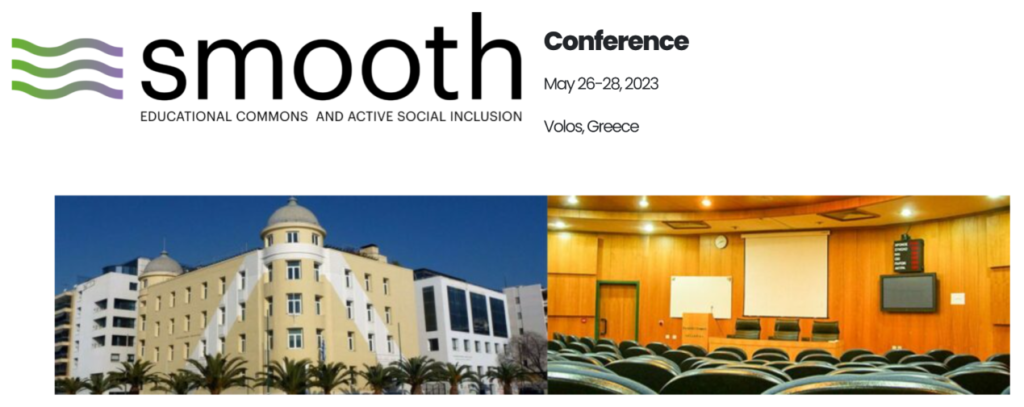
Thessaloniki Airport to City Center by Taxi
If you want to travel fast and comfortably and enjoy door-to-door services without trying to navigate around the city, then the Thessaloniki airport taxis will satisfy your transfer needs. The dark blue cabs offer quick rides to the city center at affordable prices. Therefore, the journey to the city center, under normal traffic, takes approximately 30 minutes. The cost for this ride is fixed, at 24€/24$ during the day and 32€/32$ during the night shift (00:00 am to 05:00 am).
Thessaloniki Airport doesn’t offer many options for your transfer to the city center. Luckily, the airport is located close to the city center, at a 13 km distance. Therefore, the hassle won’t be significant. So, unless you choose a private airport transfer or you rent a car, you can either travel by an airport taxi or take the public airport bus.
| Options | Daytime Price | Night Time Price | Duration |
| Taxi | 24€/24$ | 32€/32$ | 30 min |
| Bus | 1.80€/1.80$ | 1.80€/1.80$ | 40 min |
BUS INFORMATION
From Thessaloniki to Volos
Airport “Macedonia”
City Buses: The city buses connect the airport of Thessaloniki with the New Railway Station, with the centre of Thessaloniki, as well as with the Intercity Station of Macedonia (KTEL). Departure is usually every 30 minutes and the ticket price is around 2 euros.
Directly to the city centre and the opposite:
- No 01X “KTEL – Airport”
- No 01N “KTEL – Airport” (Night line)
https://oasth.gr/#en/routeinfo/list/61/12/73/
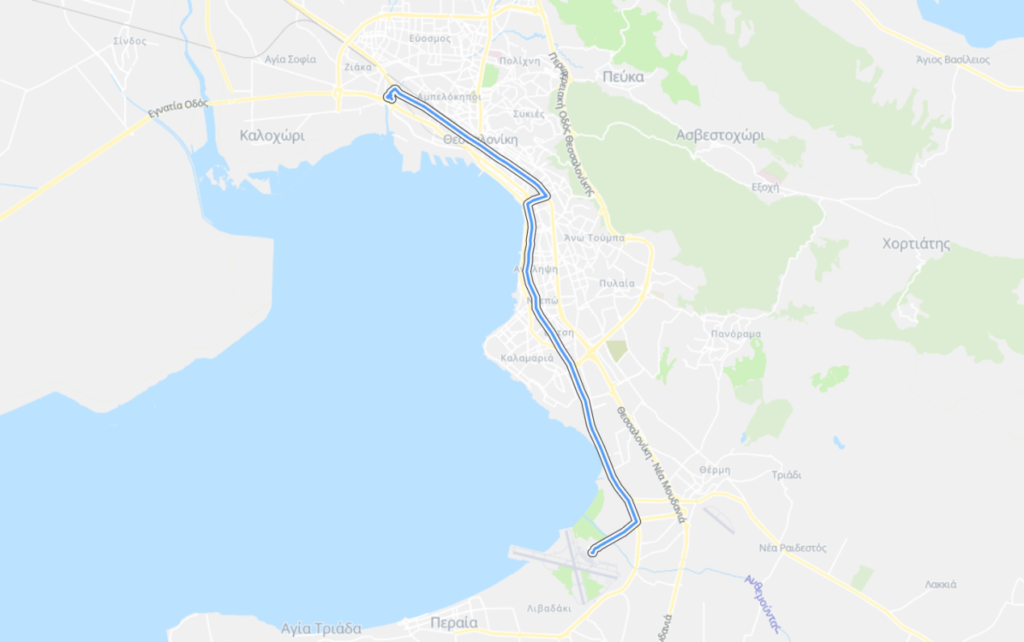
Volos Station KTEL
Address:
Sekeri & Zachou
Routes Information: 14505
Toll free number for mobile and OTE landline.
Volos Station:
800-11-35555 (Toll free for calls from Athens, Thessaloniki and Volos), +30 24210-33253, +30 24210-33254, +30 24210-25527
E-mail: ktelvol@otenet.gr
Fax: +30 24210-25573
Thessaloniki Station (244, Giannitson Str.):
+30 2310-595424
Routes: https://ktelvolou.gr/en/routes/map/&map=greece
E-Tickets: https://ktelvolou.e-ticketing.gr/Pages/Destinations.aspx
Routes
Routes are changing.
For more information please call (+302421033254 )
Thessaloniki to Volos routes: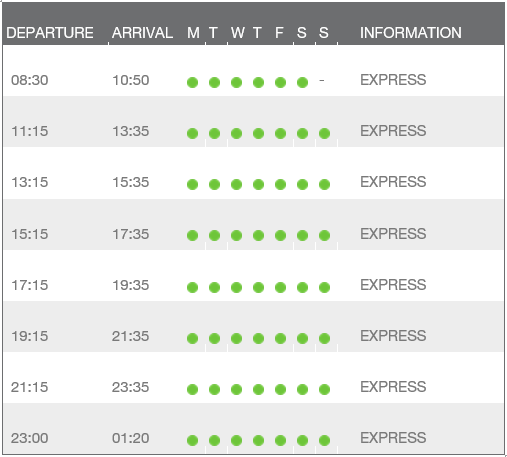
Volos to Thessaloniki routes: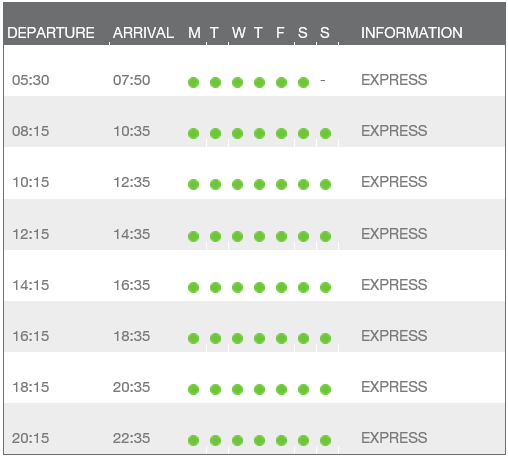
From Athens to Volos
Athens Airport “Eleutherios Venizelos” to KTEL Liosion (Bus Terminal)
- By Bus X93
- By taxi
- By Metro
https://ktelvolou.gr/el/routes/map/&map=greece
Routes are changing.
For more information please call (+302421033254 )
Volos to Athens routes: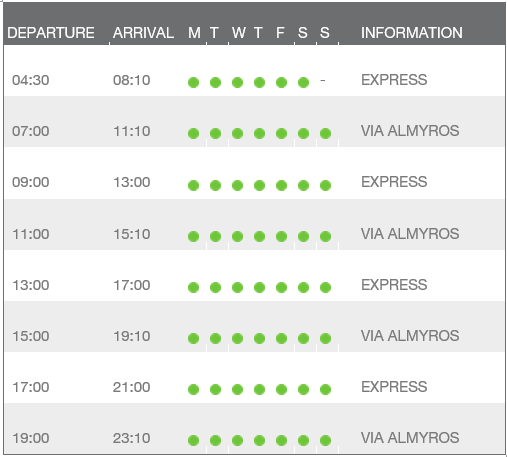
Athens to Volos routes: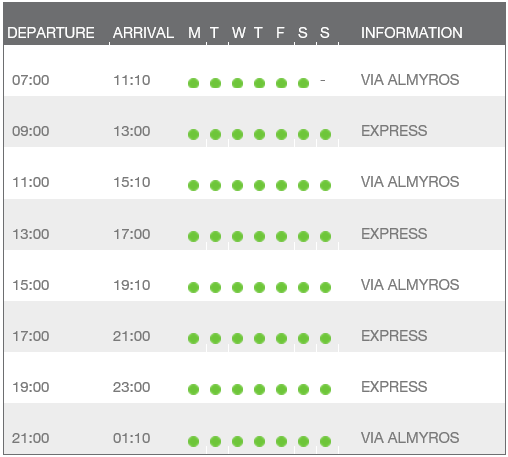
Conference Venue in Volos
University Of Thessaly
Argonafton & Filellinon
382 21, Volos
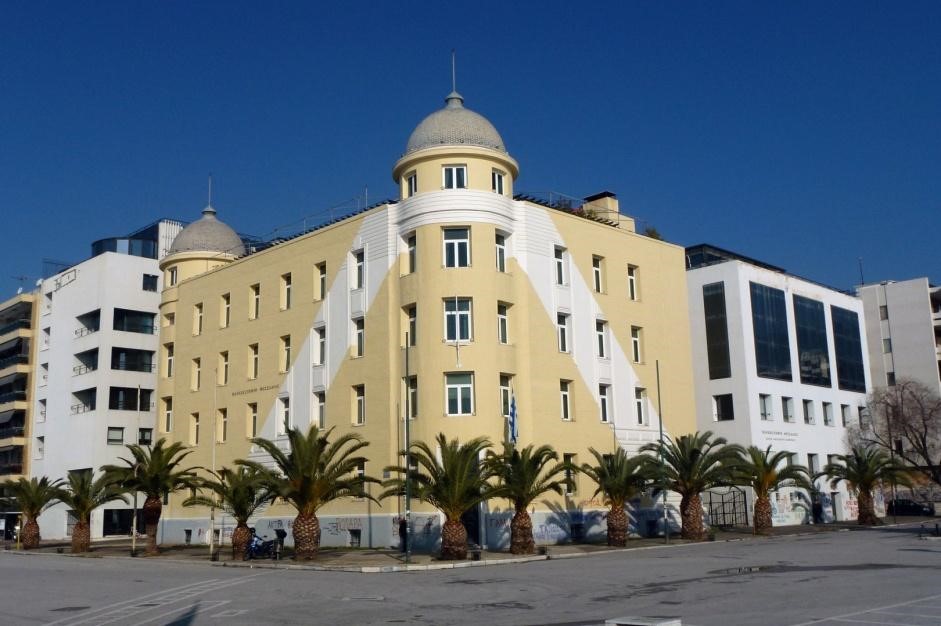
Organization team:
Yannis Pechtelidis
Ioannis Kozaris
Alexandros Kioupkiolis
Christina Pipili
Alekos Pantazis
Silia Rantitsa
Evi Adamopoulou
Elina Moraitopoulou
Stelios Pantazidis
Elena Viseri
Niki Nikonanou
Angeliki Botonaki
Panagiotis Kanellopoulos
Eirini Lazaridou
Anna Chronaki
Paschalis Arvanitidis
Giorgos Papagiannitsis
Scientific committee:
Yannis Pechtelidis
Ioannis Kozaris
Alexandros Kioupkiolis
Alekos Pantazis
Silia Rantitsa
Evi Adamopoulou
Elina Moraitopoulou
Stelios Pantazidis
Elena Viseri
Niki Nikonanou
Panagiotis Kanellopoulos
Eirini Lazaridou
Angeliki Botonaki
Anna Chronaki
Paschalis Arvanitidis
Giorgos Papagiannitsis
Andreas Takis
Catarina Tomás
Liselott Mariett Olsson
Lucía del Moral-Espín
Florian Eßer
Mònica Figueras
Rudi Roose
Natalia Fernandes
Gianna Cappello
Mittzy Arciniega
Robert Lecusay
Judith von der Heyde
Carolina Gonçalves
Elisabete Gomes
